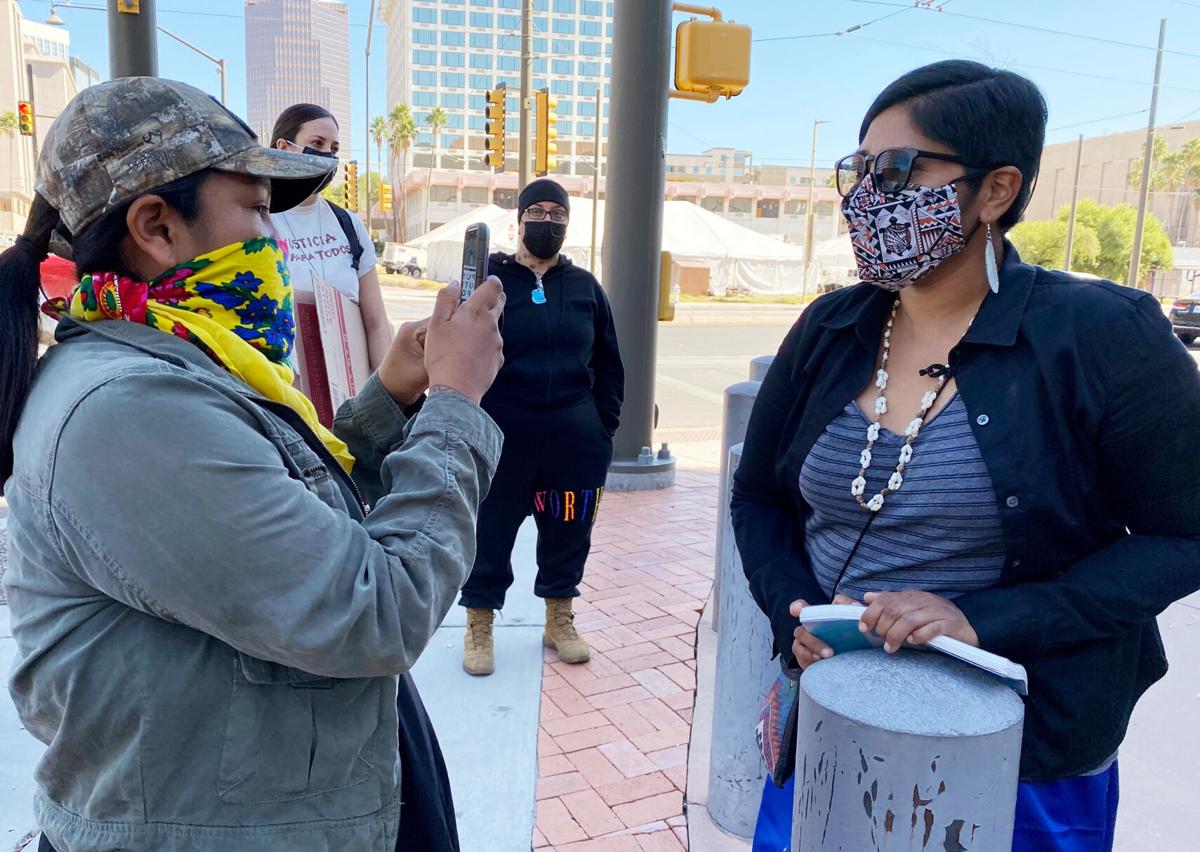A Tohono O’odham woman, arrested for protesting border-wall construction near a sacred tribal site, is asking a judge to reconsider a recent decision that she can't use a federal law protecting religious freedom as her defense.
Amber Ortega was arrested after refusing to leave a construction site on Sept. 9, 2020, in Organ Pipe Cactus National Monument, about 150 miles southwest of Tucson, where contractors were building more than 40 miles of 30-foot-tall steel border wall.
The site is about one-eighth of a mile from Quitobaquito Springs, an ancient watering hole that’s sacred to the O’odham.
In limiting the Religious Freedom Restoration Act defense, the judge did not identify and correctly apply the law, defense attorney Amy Knight argues in a 10-page motion filed on Dec. 8.
Knight represented migrant-aid worker Scott Warren in the high-profile case in which he was acquitted by a federal jury in 2019 on felony charges for assisting two Central American men.
Knight recently took over Ortega's defense from attorney Paul Gattone, who represented her during a Nov. 4 bench trial in U.S. District Court in Tucson.
U.S. Magistrate Judge Leslie Bowman ruled on Nov. 18 that while the Religious Freedom Restoration Act does apply in Ortega’s case, she was unable to prove that the area’s closure and a federal ranger telling her to leave the construction zone imposed a substantial burden on her ability to engage in religious activities.
Knight counters that it’s not the closure order that imposed a substantial burden on Ortega’s right to exercise her religion, but the criminal prosecution and any related punishment.
“Absent this prosecution, Ms. Ortega was able to engage in the relevant exercise of her religion: doing whatever she could to protect her people’s sacred lands, including placing her own body between the equipment she viewed as harmful and the land she viewed as sacred,” Knight said in the motion. “… It is the validity of the prosecution, not the legality of the construction project, that this court must decide.”
Knight also argues the judge had too narrow an understanding of Ortega’s religious actions when ruling there was no substantial burden because Ortega had access to the spring.
“When in fact, her religious practice encompasses the act of defending her sacred land,” Knight said in an interview. “So defending them, itself, standing in front of that truck, all of that — that's like prayer for her.”
Thirdly, the judge wasn’t specific enough on what constituted a substantial burden when she said there wasn’t one, Knight said.
“The best outcome would be for her to, in fact, reconsider her rejection of the religious freedom defense and rule that Amber cannot be prosecuted for this because it was an exercise of her religion,” Knight said.
Bowman said in her Nov. 18 ruling that she will not use Ortega’s testimony regarding her religious beliefs in determining whether Ortega is guilty, but only for considering “purposes of motive and mitigation.” Ortega was charged with interfering with agency function and violating a closure order, both misdemeanors.
The judge said she would make a decision in the case on Dec. 15. Knight expects there will be a response to her motion before then.





